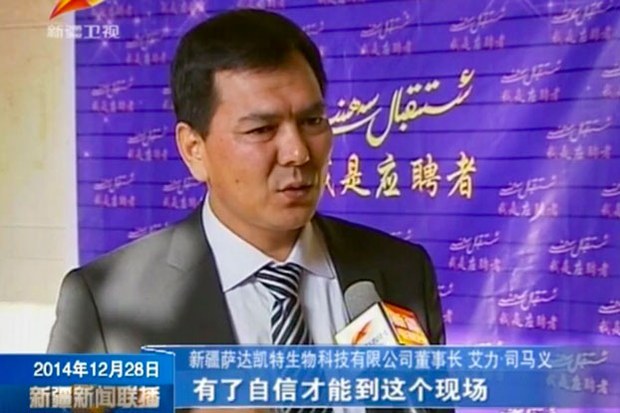Elijan Ismail made a name for himself as a prominent Uyghur entrepreneur in the 2000s.
He founded Xinjiang Sadaqet Bio-Technology Co., Ltd., in his hometown of Maralbexi in southern Xinjiang, and in 2008 moved it to Xinjiang’s capital Urumqi.
It was there that Ismail joined a group of young businessmen who began making charitable donations, particularly to those who needed medical treatment in city hospitals, according to Abduweli Ayup, founder Uyghur Hjelp, or Uyghuryar, a Norway-based nonprofit organization that documents Uyghurs who have been arrested and imprisoned.
But because China had forbidden the practice of zakat — a religious obligation for Muslims to donate a portion of their wealth each year to charitable causes — in Xinjiang since 2016, with few exceptions, police branded them an “ethnic separatist group,” Ayup said.
After investigating their charitable activities as well as those they helped, authorities arrested Ismail and the others.
Ismail, now 49, was picked up in Urumqi in 2017 and sentenced the following year to 18 years in prison for “inciting separatism” because the recipients of his donations included families of political prisoners, said an officer at the Maralbexi market police station in Kashgar prefecture.
Bogus charges
His case illustrates how Chinese authorities have targeted and arrested numerous Uyghur businessmen as part of a campaign to monitor, control and assimilate members of the over 11 million-strong ethnic group in Xinjiang.
Authorities have used bogus charges of separatism and terrorism as an excuse to target the Uyghurs purportedly to prevent religious extremism and terrorist activities, rights groups say.
Many Uyghur entrepreneurs were arrested during the period of mass detentions that began in 2017. Radio Free Asia has brought to light details about their sentences and jailing after probing their backgrounds.

